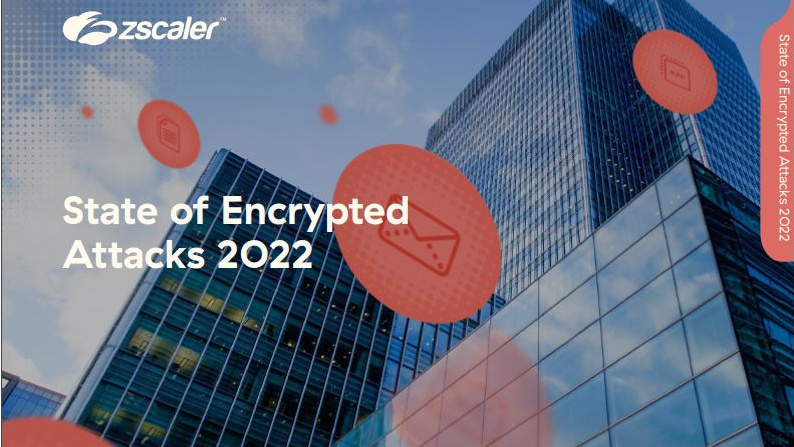Social networks should report suspicious users, says spy boss
MI5 director general calls for updated surveillance powers


The head of MI5 has called on social networks to do more to report suspicious users on their networks.
In a live interview on Radio 4's Today programme, the first by a serving British security chief, Andrew Parker said that more online surveillance powers were required by spooks and added that terrorists posed a greatest threat to the public in more than 30 years.
Parker said that Islamic State was regularly using social networks to recruit members and plan attacks, adding that Facebook, Twitter and other platforms had a responsibility to report terrorist and other criminal activities to law enforcement agencies.
He said the programme that some of the social media companies "operate arrangements for their own purposes under their codes of practice, which cause them to close accounts sometimes because of what is carried".
"There is then a question about why not come forward?' If there is something that concerns terrorism, or child sex exploitation or concerns some other appalling area of crime, why would the company not come forward? That was the question the ISC was raising."
In a statement published after the interview, Parker said that MI5 was "being stretched by a growing threat from terrorism, and from Syria in particular, combined with the constant challenge of technological change.
"The way we work these days has changed as technology has advanced. Our success depends on us and our partner agencies having sufficient up-to-date capabilities, used within a clear framework of law against those who threaten this country."
Get the ITPro daily newsletter
Sign up today and you will receive a free copy of our Future Focus 2025 report - the leading guidance on AI, cybersecurity and other IT challenges as per 700+ senior executives
The spy chief also warned over online encryption and said that advances in technology would cause terror suspects to "go dark".
"I welcome government's intent to update the legal framework accordingly and to make our powers more transparent. Keeping our laws up to date in this area can only be a good thing in a free, democratic country the very thing MI5 exists to protect. We need to be able to operate in secret if we are to succeed against those who mean the UK harm. But the capabilities we use can be described more fully in law.
"We take our legal and ethical duty to use these powers proportionately extremely seriously. We never use them for the sake of it and do not trawl at will through people's private lives."
UK internet body ISPA responded to the interview in a statement saying that it believes law enforcement should have reasonable access to communications data as long as the governing legislation has appropriate safeguards, oversight arrangements and does not damage inward investment and the UK's position as a leading place to do business online.
"ISPA calls on the Home Office to follow the advice of Parliament and consult with industry and the wider Internet community on the Investigatory Powers Bill," said Nicholas Lansman, ISPA Secretary General.
"It is important to get the balance right between privacy, security, maintaining user trust and the cost to industry as key issues such as retaining third party data, judicial oversight and data hosted abroad are discussed."
Rene Millman is a freelance writer and broadcaster who covers cybersecurity, AI, IoT, and the cloud. He also works as a contributing analyst at GigaOm and has previously worked as an analyst for Gartner covering the infrastructure market. He has made numerous television appearances to give his views and expertise on technology trends and companies that affect and shape our lives. You can follow Rene Millman on Twitter.
-
 Cleo attack victim list grows as Hertz confirms customer data stolen
Cleo attack victim list grows as Hertz confirms customer data stolenNews Hertz has confirmed it suffered a data breach as a result of the Cleo zero-day vulnerability in late 2024, with the car rental giant warning that customer data was stolen.
By Ross Kelly
-
 Lateral moves in tech: Why leaders should support employee mobility
Lateral moves in tech: Why leaders should support employee mobilityIn-depth Encouraging staff to switch roles can have long-term benefits for skills in the tech sector
By Keri Allan
-
 ThreatLabz Report: The state of encrypted attacks
ThreatLabz Report: The state of encrypted attacksWhitepaper What's hiding in your web traffic?
By ITPro
-
 Capita tells pension provider to 'assume' nearly 500,000 customers' data stolen
Capita tells pension provider to 'assume' nearly 500,000 customers' data stolenCapita told the pension provider to “work on the assumption” that data had been stolen
By Ross Kelly
-
 Gumtree site code made personal data of users and sellers publicly accessible
Gumtree site code made personal data of users and sellers publicly accessibleNews Anyone could scan the website's HTML code to reveal personal information belonging to users of the popular second-hand classified adverts website
By Connor Jones
-
 Pizza chain exposed 100,000 employees' Social Security numbers
Pizza chain exposed 100,000 employees' Social Security numbersNews Former and current staff at California Pizza Kitchen potentially burned by hackers
By Danny Bradbury
-
 83% of critical infrastructure companies have experienced breaches in the last three years
83% of critical infrastructure companies have experienced breaches in the last three yearsNews Survey finds security practices are weak if not non-existent in critical firms
By Rene Millman
-
 Identity Automation launches credential breach monitoring service
Identity Automation launches credential breach monitoring serviceNews New monitoring solution adds to the firm’s flagship RapidIdentity platform
By Praharsha Anand
-
 Neiman Marcus data breach hits 4.6 million customers
Neiman Marcus data breach hits 4.6 million customersNews The breach took place last year, but details have only now come to light
By Rene Millman
-
 Indiana notifies 750,000 after COVID-19 tracing data accessed
Indiana notifies 750,000 after COVID-19 tracing data accessedNews The state is following up to ensure no information was transferred to bad actors
By Rene Millman